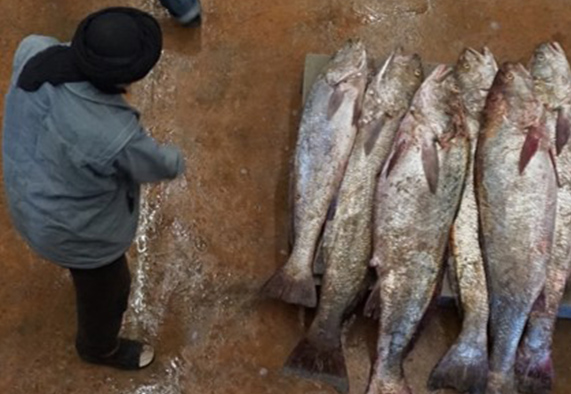China’s Maritime Silk Road from a fisheries lens
The MaMariS project seeks to assess from multiple perspectives how the Maritime Silk Road Initiative (MSRI) is materialising on the ground in the face of the increasing demand for, particularly in East Asia, and extraction of fish resources. In doing so, MaMariS seeks to shift away from a research focus on the territorialisation of political interests in the oceanic realm and instead towards an interactional perspective on the (trans-)local negotiations around marine biological resources. MaMariS seeks to empirically study the ongoing process of defining and (re-)constituting the MSRI through interactions between agents at various spatial scales, including artisanal fishers/fish-processing, local entrepreneurs, trawler crews, consumers and policy-makers in West Africa.
Multi-sited, practice-oriented research as part of a PADDLE secondment focusing on the materialisation of large-scale fisheries in Western Africa, during a research stay in September/October 2018, Prof. Dr. Hornidge and Dr. Alff assessed the changing social interactions and relations as well as socio-economic transformations in coastal artisanal fisheries along the Atlantic Coast of Senegal, Mauritania and Ghana. The research objective was to get a better understanding of how local artisanal fishers are challenging, gaining from and adapting their livelihoods to the increasing exploitation of fish resources in the Exclusive Economic Zones (EEZ) of Senegal, Mauritania and Ghana. As one example for these adaptation practices may be mentioned the so called ‘saiko’ phenomenon along the Ghanaian coast, which describes the informal exchange relations between Chinese trawlers and former fishers, trading consumer goods at sea against bycatch.
The research findings will be utilised to further develop a more in-depth research project focusing on the materialisation and negotiation of the MSRI in the field of fisheries.
Project Partner |
|---|
|
Prof. Papa Ndiaye (UCAD Dakar) Elimane Kane (IMROP Nouadhibou) Dr. John Boateng (University of Ghana) |





